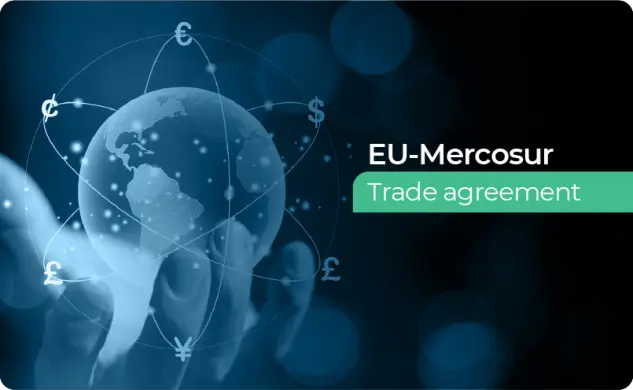EUR.1 and EUR-MED certificate.
- Wed, March 08, 2023
- 2 minute read

Leave applying for your EUR.1 certificate to us.
An EUR.1 document is not compulsory, but in many cases will offer the buyer financial benefits, i.e. reduced or zero import duties. If you plan to export to a country with which an agreement has been reached, we will simply arrange the export declaration and request the EUR.1 certificate on your behalf.
Do you personally import from a country with which you have an agreement? If so, ask whether your supplier can include an EUR.1 certificate with the consignment in order to obtain a reduction of or exemption from import duties upon import.
EUR-MED certificate.
An EUR-MED certificate works in the same way as an EUR.1 document, but is only valid if you trade with countries to which the Pan-Euro-Mediterranean convention applies. This agreement allows the raw materials and products of Preferential Origin from these countries to be taken into consideration when determining the Rules of Origin. An EUR-MED certificate is therefore in lieu of an EUR.1 document with the same financial advantages as those offered by goods of preferential origin companies.
Approved Exporter authorisation.
Do you regularly export with an EUR.1 document or EUR-MED certificate? If so, request an Approved Exporter authorisation. That is because sometimes, without an EUR.1 declaration, you will also qualify for a reduction of or exemption from import duties. For example, through the Approved Exporter (TE) scheme. In that case, you require formal consent from the government agencies to be able to issue your own preferential proofs of origin for your products. The customs advisors at Gaston Schul will help you to choose and they can request the Approved Exporter authorisation on your behalf.
Difference between provenance and origin.
The words ‘provenance’ and ‘origin’ of goods are often used interchangeably. Nevertheless, they have different meanings, particularly in the world of customs matters. ‘Provenance’ relates to the customs status of the goods. Are they Union goods (goods that are produced in the EU, or that have already been imported from a non-EU country) or non-Union goods (goods from non-EU countries)? ‘Origin’ refers to where a product is manufactured, produced or grown.
It is nowadays frequently the case that a product has not been produced in full in a specific country. Fortunately, rules are in place that determine what requirements goods have to meet and what records are needed to determine proof of preferential origin. The customs advisors at Gaston Schul will be happy to support you in collecting the required proof. To ensure there are no unpleasant surprises, a Binding Origin Information (BOI) decision can be requested; this BOI is then valid throughout the whole of the European Union (EU).
Related News & Articles
Get our expert insights and customs resources delivered straight to your inbox
By subscribing, you consent to be contacted by Gaston Schul about our relevant content, products and events. You can opt-out at any time. For more information, please see our privacy policy.




